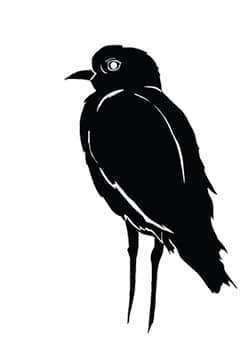Pride: The Inception
Back in 1999, I started a football website called The Collingwood Rant.
 Football being a seasonal thing, I needed content during the off-season.
Football being a seasonal thing, I needed content during the off-season.
Most of the time, I posted odds and ends. I was young and energetic, so I always had content – good, bad, and indifferent.
Come 2002, I thought I’d serialize a story.
For years, I’d had this idea about a freakishly magical footballer, everybody in awe of his ability, a la The Natural. Here was the perfect medium – a football website featuring a football serial. Now it was just a case of working out the details.
I’d always thought the story would unfold in the AFL (Australian Football League), but as I fleshed out the idea I realized that wouldn’t work. Outside of the possibility of licensing issues, AFL fans are so parochial that I was concerned they might not invest in a story if it wasn’t about their team.
So I decided that I’d create a series of fictional rural Australian towns that competed in the same league.
I love good sports films. They’re hard to mess up. It’s a genre where the structure is ready-made. All you have to do is fill in the details.
For example:
-
-
- There’s an underdog (individual or team)
- There’s usually an antagonist – an evil champion or champion team that needs to be toppled
- Everything starts hopelessly
- There are constant obstacles and challenges
- Then something changes (and in the case of a team-oriented sport, the team learns to work together)
- The underdog makes an improbable charge
- They learn something about themselves along the way
- There’s some sort of championship game – the underdogs don’t necessarily have to win. Sometimes (like in Rocky) it’s about the journey and just getting there.
-
You can apply that template to pretty much every great sporting movie – from The Hustler to Rocky to Slapshot to The Natural to Miracle to Wildcats to Rush, etc.
(As an aside, I classify a “sport” story as one that involves sporting contests and, possibly, a championship. I wouldn’t, for example, consider Field of Dreams a sporting movie, but one that uses sport – baseball – as a backdrop.)
The only other genre that I believe comes with a ready-made structure is the courtroom drama. They also have an inherent framework, although it can be inverted to an extent depending whose side the protagonist is on (defendant or prosecutor). But generally there’s a client whose cause seems hopeless, there’s a lead-up to a trial, and then they go back and forth in court.
To understand Pride’s universe, I chronicled the towns, and then made this entire history about their league, drawing up a premiership and wooden spoon table, and then even drew up scores for the previous season’s finals in case they were referenced (as the most recent season).
My support for Collingwood heavily influenced how I shaped the my protagonist’s team. If you don’t know anything about football, Collingwood is often penultimately successful, battling their way to grand finals only to fall excruciatingly short. My protagonist team was remarkably similar – often valiant, but rarely good enough.
The thing that surprised me was before starting Pride, I’d always imagined my magical footballer was the protagonist. But now, the protagonist became a young footballer, Luke, who reports on the arrival of the magical footballer, Adam Pride, his impact on the team, and how things change. Luke later investigates the mystery that surrounds Adam Pride and his ties to the evil champion team.
Pride’s one of those stories that just flowed as it emerged, surprising me with its twists and the way characters took ownership of the story.